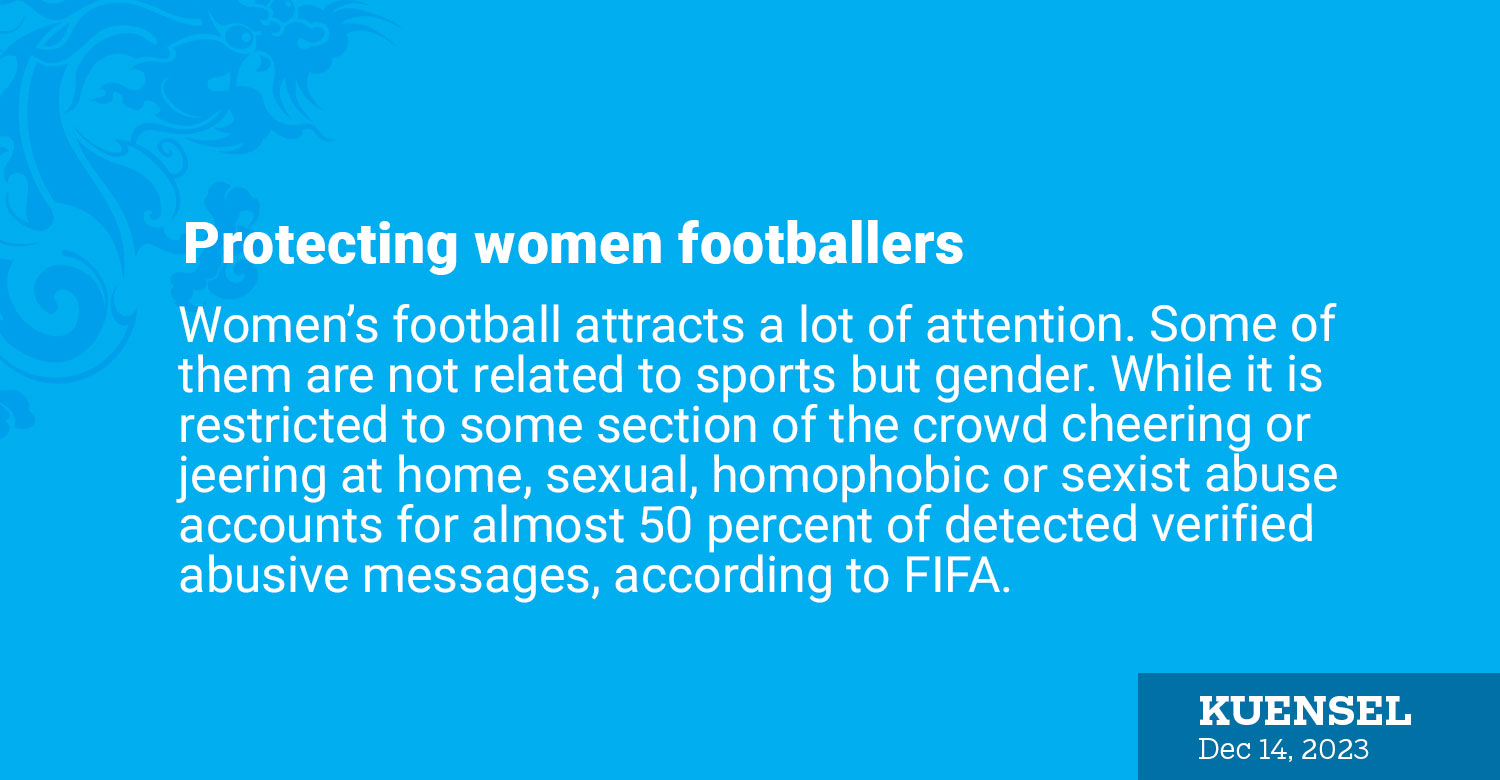FIFA starts social media protection service for better women footballers
Thinley Namgay
Women’s football attracts a lot of attention. Some of them are not related to sports but gender. While it is restricted to some section of the crowd cheering or jeering at home, sexual, homophobic or sexist abuse accounts for almost 50 percent of detected verified abusive messages, according to FIFA.
In a recent FIFA report on “Social Media Protection Service (SMPS) at the FIFA Women’s World Cup 2023,” the football governing body revealed that one in five players at this year’s women’s World Cup received targeted discriminatory, abusive, or threatening messages online.
The FIFA report stated that players at the FIFA Women’s World Cup 2023 were 29 percent more likely to be targeted with online abuse compared to players at the FIFA World Cup Qatar 2022. SMPS is an innovative approach to help reduce the exposure of players, teams, and officials to online abuse and hate speech.
SPMS uses artificial intelligence to protect participants from online abuse, keeping their social feeds free from hate and allowing them to concentrate on their performance. It also stops their followers from being exposed to hate speech.
SMPS analysed 5.1 million social media posts and comments at the FIFA Women’s World Cup 2023 for abusive content in 35 different languages, protecting 697 players and coaches actively using 2,111 accounts across Facebook, Instagram, TikTok, X (formerly Twitter), and YouTube. Moreover, 239 active accounts held by 29 match officials and the 32 participating teams were also covered by the SMPS.
Through the SMPS at the Women’s World Cup 2023, FIFA was able to protect 700 players and coaches from online abuses. FIFA is determined to continue its SMPS services during FIFA tournaments. “The SMPS has now been used at eight FIFA tournaments in the last 12 months.”
Using SMPS, FIFA has helped reduce the exposure of players, teams, and officials to online abuse and hate speech by reporting and hiding more than 400,000 comments.
The toxic online environment is risky for players, and it affects their mental health and well-being, FIFA stated.
What for Bhutanese women footballers
The Bhutan Football Federation (BFF) has not received a single case or complaint related to online abuse of women footballers.
However, BFF appointed a focal person who helps in safeguarding women players below the age of 18. BFF’s Social Responsibility Division also partners with agencies such as the National Commission of Women and Children and RENEW on various campaigns to help educate the community using football as a tool.
Head of women’s football, Pema Choden Tshering, said that BFF had not received any complaints of abuse or sexist abuse so far. But protecting girls and women has become relevant with more than 5,000 women footballers registered for competitions, grassroots activities, and programmes. Gelephu Football Academy alone has 69 women.
Pema Choden Tshering said there are commendable numbers of women officials at BFF to look after the welfare of women players.


